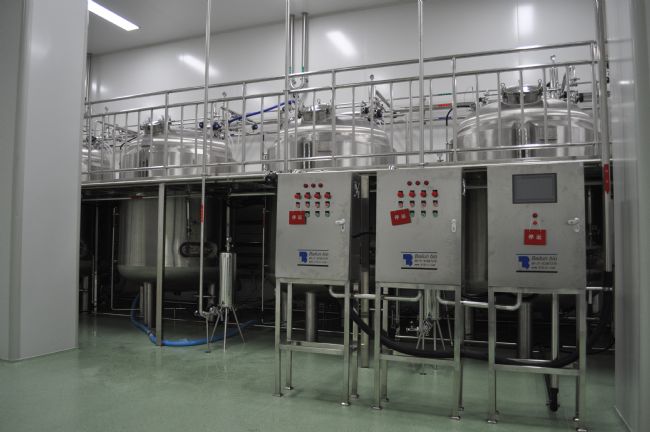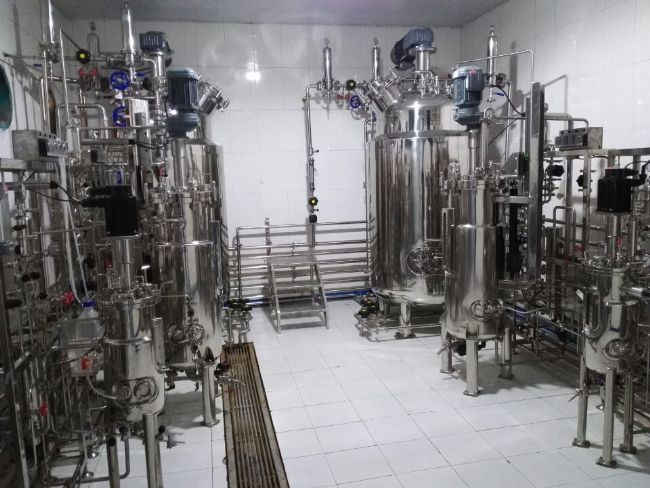Probiotics are microorganisms that have a beneficial effect on the body after proper ingestion. The interactions between different microbial communities in nature can be divided into: neutrality, partial symbiosis, collaboration, mutual symbiosis, competition, antagonistic, predation, and parasitism. Among them, the positive symbiosis, cooperation, and reciprocal symbiosis with positive interactions make mixed fermentation possible, inspiring people to use different strains for mixed fermentation. In long-term scientific research and production practice, many important biochemical reactions have been discovered that individual microbes cannot be completed or can only be performed weakly, and must be completed by two or more microorganisms. Probiotic mixed fermentation technology has been paid more and more attention. At present, probiotic mixed fermentation technology has been widely used in dairy products, functional beverages and other fields. 2 Classification Currently, probiotic bacteria used in the field of food fermentation include Bifidobacteria, Lactobacillus and certain Streptococcus. Bifidobacteria include Bifidobacterium adolescentis, Bifidobacterium breve, Bifidobacterium bifidum, Bifidobacterium infantis, etc.; acid bacillus has Lactobacillus acidophilus, Lactobacillus bulgaricus, Lactobacillus casei, Lactobacillus fermentum, Lactobacillus plantarum , Lactobacillus brevis, Lactobacillus brevis and Lactobacillus lactis; Streptococcus has Streptococcus faecalis, Streptococcus faecalis, Streptococcus thermophilus and Streptococcus lactis. In addition, strains of the genus Streptococcus, Staphylococcus, Propionibacterium, and Bacillus can also be used as probiotics. They come from a wide range of sources, fresh vegetables and fruits with a small amount of probiotics, and lactic acid fermented products are also a good source of probiotics. 3 probiotic function Probiotics maintain the homeostasis of the intestinal flora and inhibit the growth and reproduction of pathogenic bacteria. In the treatment of acute diarrhea, supplementation with appropriate probiotics helps to balance the intestinal flora and restore normal intestinal pH, alleviating the symptoms of diarrhea. It can produce a variety of active substances that can inhibit the growth of pathogenic bacteria, can reduce the pH value of the intestines, and can also promote the shielding function of the intestinal tract, thereby effectively reducing the gastrointestinal dysfunction caused by bacterial infection. diarrhea. There is a very developed immune system in the intestines. Probiotics can modulate immune status by stimulating immune function in the gut. The immunological activity of probiotics is not limited to enhance mucosal immune function, and can play a regulatory role in both cellular and humoral immunity. Probiotics have an immune-enhancing effect on phagocytic regulation in healthy individuals and down-regulation in allergic patients. Probiotics can reduce blood cholesterol levels through assimilation, prevent coronary atherosclerosis caused by hyperlipidemia and coronary heart disease, and reduce the incidence of cardiovascular disease. In addition, the bacterial components and fermentation products of the probiotics have a blood pressure control effect to some extent. It should be noted that probiotics only reduce serum cholesterol levels in high-fat populations, but not in normal populations. Probiotics also play a role in other areas, such as anti-caries, anti-tumor, lactose intolerance, anti-aging and so on. Modern research experiments have shown that different microorganisms have different metabolic pathways and different metabolites. The synergistic effects of a variety of microorganisms can complement each other, and complement each other can play a role that a single strain cannot. For example, Turkish yoghurt is formed by Lactobacillus bulgaricus when Streptococcus thermophilus is present. Streptococcus thermophilus causes its delicious sour taste, and in this respect, Lactobacillus bulgaricus is powerless. Bacteria are important maturation factors in the preparation of cheese. This process uses a variety of bacteria to work together. Mainly include: Lactobacillus casei, Lactobacillus helveticus, Tetrafluococcus, Streptococcus lactis, and many other bacteria in the ripening, especially in the formation of cheese aroma. Mixed fermentation has the balance of growth and metabolism of the flora, overcoming the excessive concentration of intermediate products, which can simplify the process equipment and save labor and energy. The probiotic mixed fermentation technology is more suitable for the production of traditional fermented foods such as brewed dairy products, white wine, yellow wine, vinegar, soy sauce, bean paste and soybean meal with high complex flavor requirements. With the in-depth development of mixed fermentation technology, the current mixed fermentation technology has gradually expanded to the field of dairy and functional beverage production. We are a professional Chinese supplier of Reagents Material;we supply various products of Chemical Reagent, Standard Substance ; and we can providing product images and basic parameters with each Reference Substance and Reagent Product, such as Proteinase K, Bilirubin Powder. Look forward to your cooperation! Chemical Reagent,Standard Substance,Reference substance,Proteinase K,Bilirubin Powder Xi'an Quanao Biotech Co., Ltd. , https://www.quanaobiotech.com
1 Concept Probiotics, also known as microecological regulators, ecological products, live bacterial preparations, are microbial supplements that replace or balance the action of one or more strains in the system, ie by supplementing the beneficial microorganisms in the digestive tract of the animal, improving The digestive flora balances and has a beneficial effect on the organism, rapidly improving the body's disease resistance, metabolism and digestion and absorption capacity, and achieving microbial additives that prevent and treat digestive diseases and promote growth.
3.1 prevention and treatment of gastrointestinal infectious diseases
3.2 anti-allergy and immune modulation
3.3 lowering the role of cholesterol
3.4 Other effects of probiotics
4 Probiotic mixed fermentation technology Mixed fermentation is based on complex cereals, with a variety of enzymes secreted by microorganisms, mixing tanks and fermenters , the conversion of raw ingredients into a variety of flavors and nutrients. 
5 probiotic mixed fermentation technology
Probiotics - microorganisms beneficial to the body
Next Article
Fruit tree topdressing in spring